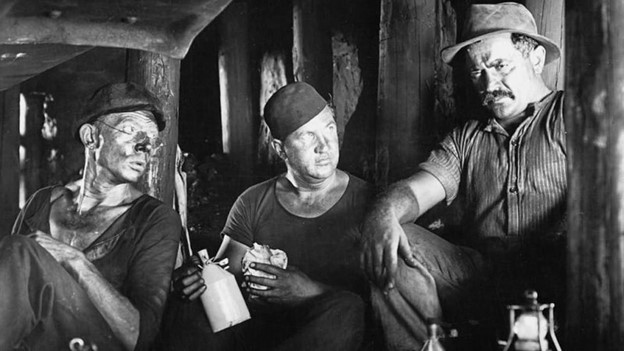Kameradschaft (1931)
G.W. Pabst's "Kameradschaft"
By 1931, the Nazi party's political and social influence started to infest Germany and Europe as a whole. Their hateful rhetoric, which included nationalism, xenophobia, and racism were influencing the perspectives of the average citizen everywhere. Europe was starting to become more and more fractured, especially after the global crisis of World War I. Borders between countries grew increasingly stronger, as it became more and more difficult to travel and become associated with people from another country. Tensions between international citizens had never been higher. As an antidote to this heated social perspective, G.W. Pabst made a film that encouraged unity between differing nations.
The film, "Kameradschaft" tells the story of the real mining incident that occurred in 1906 in Courrieres, France - a city which borders Germany. The incident, which is known as 'The Courrieres Mine Disaster' is considered one of the worst mining disasters in human history. After a coal dust explosion, thousands of miners were trapped underground while expert teams from Paris and Germany arrived to assist the evacuation of the trapped miners. There were 1,099 fatalities, including children. The film displays these events.
An important element of the film is the dual production between Germany and France. Pabst showcases both French and German characters in the film, alternating scenes between the two different groups. The mixture in production and characters between the two countries further drives home the themes of the film. Pabst uses the beginning of the film to showcase the derision between the two countries. When we open the film, we see unemployed Germans being denied access on the French border. Also, a miscommunication in a dance hall leads to a confrontation between visiting Germans and French citizens. The tensions at the beginning of the film are then pushed aside after the mine collapses. The neighboring German miners rise up to the challenge of helping their fellow miners, despite the national difference. Pabst slowly shows the coming together of two different countries to face a human crisis. With this unity of force, Pabst is employing contemporary citizens to put aside their national difference and unite as a common people. The title of the film, "Kameradschaft," is a German word that signifies a bond between soldiers or those who are similar circumstances. It is closely associated with the English words comradeship or camaraderie, or fellowship.




Comments
Post a Comment